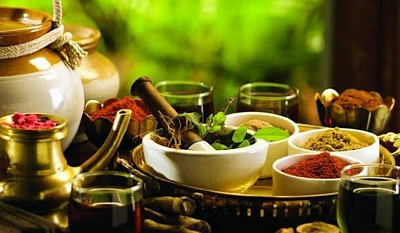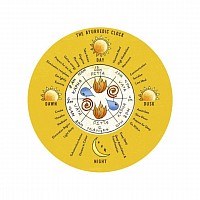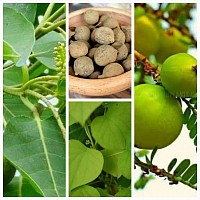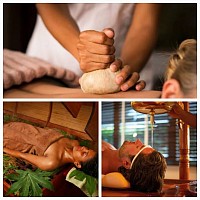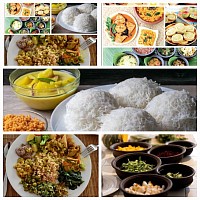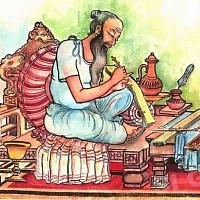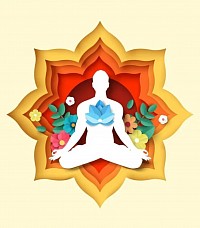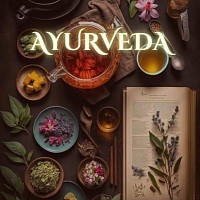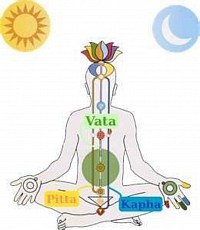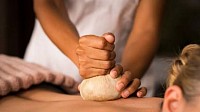Swaba Aaurr (Aurvedic)
🌿 Healing the Sri Lankan Way
Ayurveda, the ancient science of life, has been practiced in Sri Lanka for thousands of years. Blending deep Indian Ayurvedic knowledge with local Sinhala traditions and herbs, Sri Lankan Ayurveda is a unique and powerful healing system that treats the body, mind, and spirit.
🧘♀️ What Is Ayurveda?
Ayurveda means "science of life" in Sanskrit. It is based on the belief that health comes from a balance between the five elements (earth, water, fire, air, and space) and the three doshas:
Vata (Air + Space) – controls movement, nerves, and flexibility.
Pitta (Fire + Water) – controls digestion, energy, and body temperature.
Kapha (Earth + Water) – controls strength, stability, and immunity.
When these doshas are in balance, you feel healthy. When they are out of balance, illness appears.
🌿 Unique Features of Sri Lankan Ayurveda
Sri Lankan Ayurveda stands out due to its holistic approach, emphasizing the interconnectedness of mind, body, and spirit, and its focus on personalized treatments tailored to individual needs and imbalances. It also uniquely integrates with the local culture, incorporating practices like yoga, meditation, and a diet aligned with Ayurvedic principles within a serene, natural environment.
Here's a more detailed look at the unique features:
1. Holistic and Personalized Approach:
• Treating the Whole Person:
Sri Lankan Ayurveda addresses health by considering the individual's physical, mental, and spiritual well-being as a whole, rather than just focusing on the symptoms of a disease.
• Personalized Treatments:
Therapies are customized based on an individual's unique "dosha" (mind-body type) and specific health conditions, ensuring effective and targeted healing.
• Emphasis on Prevention:
Ayurveda in Sri Lanka emphasizes preventative care and maintaining balance to prevent illness before it develops.
2. Cultural Integration:
• Nature Connection:
Sri Lankan Ayurveda emphasizes a lifestyle in harmony with nature, using locally sourced herbs, natural therapies, and seasonal diets that promote a deep connection with the environment.
• Yoga and Meditation:
Yoga and meditation are integral parts of Ayurvedic treatments in Sri Lanka, used to balance the mind and body and enhance overall well-being.
• Integration with Local Culture:
Ayurvedic practices are often integrated with Sri Lankan culture, including traditional music and art, which contribute to the healing process.
3. Specific Ayurvedic Practices:
• Panchakarma:
This detoxification treatment aims to remove toxins from the body and restore balance to the doshas.
• Shirodhara:
A unique therapy involving the gentle pouring of warm herbal oils over the forehead to relieve stress and balance the body.
• Herbal Remedies:
Sri Lankan Ayurveda utilizes a wide range of local herbs, roots, and spices in its treatments, often incorporating traditional knowledge passed down through generations.
4. Modern Adaptations:
• Integration with Modern Medicine:
Sri Lankan Ayurveda is increasingly integrating with modern medicine to offer a more comprehensive approach to healthcare.
• Personalized Wellness Plans:
Ayurvedic practitioners offer personalized wellness plans that combine traditional wisdom with modern diagnostic techniques to help individuals achieve their health goals.
In essence, Sri Lankan Ayurveda offers a unique blend of ancient wisdom, personalized care, and cultural integration, making it a truly holistic and transformative approach to wellness.
🌱 Commonly Used Herbs:
Aralu (Myrobalan) – digestion and detox.
Bulu (Belleric) – respiratory health.
Nelli (Indian Gooseberry) – strong immunity booster.
Polpala (Aerva lanata) – for kidney and urinary issues.
Venivel (Coscinium fenestratum) – natural antibiotic, used for fevers.
🛀 Popular Ayurvedic Treatments in Sri Lanka
1. Panchakarma – 5-step detox and rejuvenation therapy.
2. Herbal Oil Massage (Abhyanga) – warms the body, relieves stress and joint pain.
3. Shirodhara – warm oil poured on the forehead to calm the nervous system.
4. Herbal Steam Baths – opens pores, removes toxins.
5. Kizhi Therapy – herbal bundles used for pain and inflammation.
🍛 Ayurveda and Food
In Sri Lankan Ayurveda, food is medicine. You eat according to your dosha and the season. For example:
Vata types need warm, moist foods like kenda (herbal porridge).
Pitta types benefit from cooling foods like gotukola sambol.
Kapha types should eat light, spicy foods like rasam or herbal teas.
🧑⚕️ The Role of the Ayurvedic Doctor ("Veda Mahattaya")
In Sri Lanka, veda mahattayas are respected traditional doctors. They often come from long family lineages. Diagnosis includes:
Pulse reading
Tongue and eye analysis
Questions about lifestyle and digestion
Treatment often includes not just herbs, but also advice on diet, daily routine, yoga, and meditation.
🌺 Final Thoughts
Sri Lankan Ayurveda is not just a system of medicine — it’s a way of life. Whether you're treating illness or looking to stay healthy, it offers natural, holistic healing from the island’s own soil.
🌞 Daily Life in Ayurveda: The “Dinacharya” in Sri Lanka
Ayurveda encourages a daily routine ("Dinacharya") that helps keep your doshas in balance. In Sri Lankan tradition, this is followed especially in rural areas or among families practicing ancient customs.
🕓 Sample Ayurvedic Daily Routine:
4:30 – 5:30 AM: Wake up before sunrise (called Brahma Muhurtha), pray or meditate.
6:00 AM: Drink warm herbal water or koththamalli (coriander tea).
7:00 AM: Light, nourishing breakfast like kenda (herbal porridge) or mung kiribath.
10:00 AM – 12:00 PM: Work, with regular breaks. Avoid excess heat or stress during Pitta time (midday).
12:30 PM: Main meal — traditionally includes red rice, parippu (dal), gotukola, and steamed vegetables.
2:00 PM: Rest or engage in light tasks.
5:00 PM: Gentle walk, yoga, or stretching.
6:30 PM: Light dinner — avoid heavy, oily food at night.
8:00 – 9:00 PM: Relax, no screens. Drink calming teas like venivel or belimal, then sleep.
🌼 5 Powerful Sri Lankan Herbal Remedies You Can Try
1. Koththamalli (Coriander Tea)
🌿 Ingredients: Coriander seeds, water.
🩺 Uses: Colds, cough, fever, digestion.
💡 Drink warm in the morning or evening.
2. Polpala Decoction
🌿 Aerva lanata boiled in water.
🩺 Uses: Cleanses urinary tract, kidneys.
💡 Often used by Ayurvedic doctors to prevent kidney stones.
3. Belimal Tea (Bael Flower)
🌼 Made from dried bael flowers.
🩺 Uses: Gas trouble, sleep disorders, body heat.
💡 A common night-time tea in villages.
4. Gotukola Sambol
🥗 Chopped gotukola, coconut, onion, lime.
🩺 Uses: Boosts memory, cools the body, strengthens immunity.
💡 Eaten regularly in Sri Lankan households.
5. Aralu, Bulu, Nelli Powder (Tripala)
🌀 Traditional digestive mix.
🩺 Uses: Detox, constipation, skin health.
💡 Often taken at night with warm water.
🛏️ Seasonal Ayurvedic Living in Sri Lanka
Sri Lanka has three key seasons (similar to Indian "Ritu") and Ayurveda adjusts based on climate.
🌧️ Rainy Season (Wap, Il, Unduvap):
Dosha affected: Vata (increases)
Advice: Eat warm soups, drink ginger tea, apply herbal oils to joints.
☀️ Hot Season (Bak, Vesak, Poson):
Dosha affected: Pitta (increases)
Advice: Eat cooling foods like cucumber, gotukola; avoid spicy curries.
🍃 Cooler/Dry Season (Esala, Nikini, Binara):
Dosha affected: Kapha (can increase)
Advice: Avoid dairy, use spices like black pepper, cloves, cinnamon.
🔥 Ayurvedic Body Types (Prakriti)
Understanding your body type (Prakriti) helps tailor your food, behavior, and lifestyle.
Dosha Personality Body Common Problems
Vata Creative, fast thinker Thin, dry skin Anxiety, bloating
Pitta Focused, determined Medium, warm body Anger, ulcers, rashes
Kapha Calm, grounded Heavier, oily skin Lethargy, weight gain
🔮 Ancient Wisdom for Modern Life
Sri Lankan Ayurveda teaches that:
> “Health is not just the absence of disease – it is balance, clarity, and connection to nature.”
Even in modern times, many Sri Lankans still visit veda gedara (traditional healing homes), use herbal teas, and follow cleansing practices during special Poya days or seasonal transitions.
